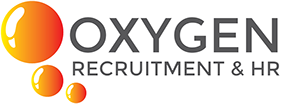Maximising Results: How to Brief Your Recruitment Agency for Optimal Hiring Success
Recruiting the right talent is a critical aspect of any organisation’s success. However, the process can be time-consuming and challenging without the right support. This is where a recruitment agency can make all the difference. But to ensure they find the perfect fit for your company, it’s essential to provide them with comprehensive information about the vacancy and your organisation. Here’s a guide on what information to give your recruitment agency for the best results:

- Detailed Position Description:
The foundation of any successful recruitment process is a detailed position description. This should include:
- Job Title and Role Overview: Clearly state the title of the position and provide a brief overview of the role’s purpose within the organisation.
- Key Responsibilities: Outline the primary duties and responsibilities associated with the role. Be specific about what tasks the successful candidate will be expected to perform.
- Required Skills and Qualifications: Clearly define the essential skills, qualifications, and experience necessary for the role. This should include both technical skills and soft skills required to excel in the position.
- Reporting Structure: Provide information about the reporting relationships associated with the role. This includes who the candidate will report to and who they will be working closely with.
- Salary Range: While this can sometimes be a sensitive topic, providing a salary range will help the recruitment agency identify suitable candidates and manage candidate expectations.
- Company Culture and Values:
Understanding your company’s culture and values is crucial for finding candidates who will not only excel in their roles but also align with the organisation’s ethos. Provide information about:
- Company Mission and Values: Explain what your organisation stands for and the principles that guide its operations.
- Work Environment: Describe the work culture, including aspects such as team dynamics, communication style, and any unique perks or benefits offered to employees.
- Employee Benefits: Highlight any staff benefits such as healthcare, retirement plans, flexible working arrangements, or professional development opportunities. These can be significant factors in attracting top talent.

- Previous Recruitment Efforts:
If the vacancy has been open for some time or has been challenging to fill, provide insights into previous recruitment efforts. This could include:
- Recruitment Channels Used: Detail the methods and platforms used to advertise the vacancy previously. This will help the recruitment agency avoid repeating unsuccessful strategies.
- Feedback from Previous Candidates: If applicable, share any feedback received from candidates who have previously applied for the role. Understanding why candidates may have been deterred can help refine the search criteria.
- Interview Process:
Clearly outline the interview process to give the recruitment agency a clear understanding of what to communicate to potential candidates. This should include:
- Number of Interview Stages: Specify how many interview stages are involved in the hiring process and what each stage entails.
- Key Decision Makers: Identify who will be involved in the interview process, including hiring managers, team members, or executives.
- Timeline: Provide an estimated timeline for the recruitment process, including key milestones such as application deadlines, interview dates, and when a decision is expected to be made.
- Future Opportunities and Career Progression:
Lastly, provide information about potential growth opportunities within the organisation for the successful candidate. This can be a significant factor for candidates considering long-term prospects. Highlight:
- Career Progression Paths: Explain potential career paths within the organisation and opportunities for advancement or professional development.
- Company Growth Plans: Share insights into the company’s growth trajectory and how the role fits into future expansion plans.

By providing your recruitment agency with comprehensive information about the vacancy and your organisation, you empower them to find the best possible candidates who not only meet the job requirements but also align with your company culture and values. This collaborative approach sets the stage for a successful hiring process and ensures that your organisation continues to thrive with the right talent in place. If you need recruitment support, get in touch with the Oxygen team today via our website https://www.oxygenrecruitment.com.au/employers/
